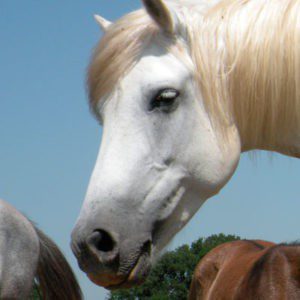As you may know, the word ‘colic’ tends to strike fear into the heart of any horse owner. This painful gastrointestinal issue is one of the most common—and one of the most deadly—issues our equine friends face. A Dahlonega, GA vet discusses this dangerous health issue in this article.
Signs
Signs of colic can vary from horse to horse. However, there are some key ones to look for. Silver may nip at his flanks, roll, or keep looking at his stomach. He may also act restless, and could pace, paw the ground, toss his head, and/or keep getting up and down. You may notice your hooved pal standing in a strange position to urinate. Other symptoms include an elevated pulse, lethargy, heavy/unexplained sweating, a decrease in food and water consumption, and changes in your horse’s waste, such as dry fecal balls or undigested grain in his waste.
Prevention
While, unfortunately, there is no way to completely eliminate the risk of your four-legged friend getting colic, there are some things you can do to decrease the odds. Dental care is very important here. If Silver’s teeth are uneven, he may not chew his food properly, which will in turn affect his digestion. Have your horse’s teeth floated regularly. Also, make sure that your horse is eating a proper diet that is appropriate for his age, weight, and lifestyle. You’ll also need to ensure that your horse always has clean water and is getting enough turnout time. Parasite control and proper cooldowns are also important. If you have a sandy turnout area, you may need to take additional steps to protect against sand colic. Ask your vet for more information.
What To Do
If you see any signs of colic, act immediately. Treat this like a serious medical emergency—which it is—and call your vet right away. Remove all food and water from your horse’s stall. If you can, walk him slowly on a lead.
Tips
Learning to understand horse language is a lifelong, ongoing experience. Spend lots of time with Silver, and become familiar with his temperament, quirks, and habits. The better you know your horse, the easier it will be for you to spot any signs of illness or injury!
Do you have questions or concerns about your horse’s diet or care? Please feel free to contact us, your Dahlonega, GA animal clinic, anytime.

